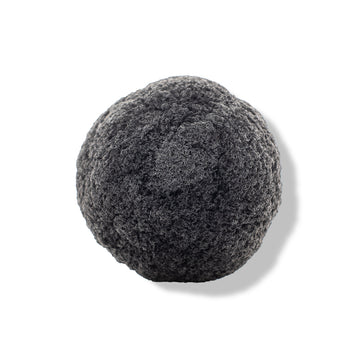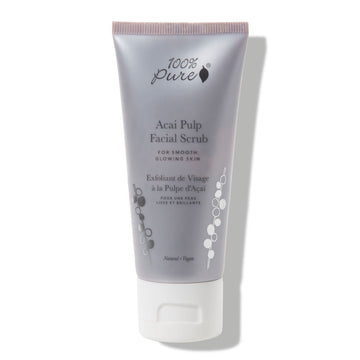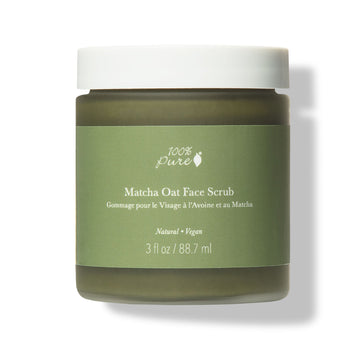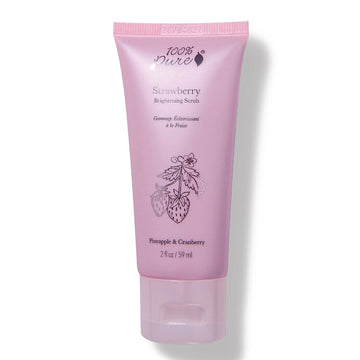The best exfoliator for your face might not be what you expected
Written by: 100% PURE®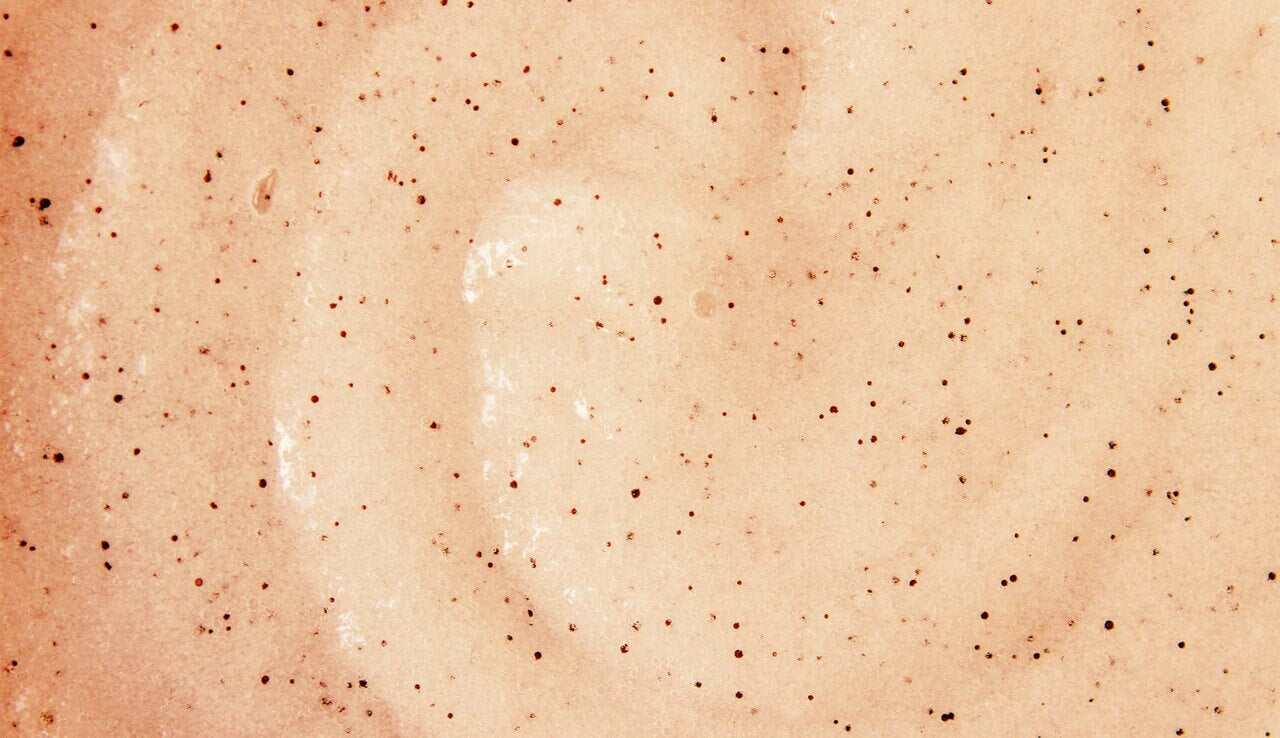
Facial scrubs have long been the tried-and-true option for exfoliating. Of course, with a stellar reputation that precedes itself, you’ll now be faced with a multitude of exfoliant options. Two such contenders for the best exfoliator for face are chemical and physical exfoliation.
With so many skincare products on the market claiming to be the best facial exfoliators, it’s hard to know where to begin. We’re here to guide you through the exfoliation basics for every skin type. We’ll show you how to find the right one for radiant, glowing skin.
The options for exfoliators fall under one of two types of exfoliation methods: physical and chemical. Both types of exfoliants do essentially the same thing – remove dead skin cells – but go about it in different ways.
To choose the best exfoliator for face for your specific skin concerns, it’s important to understand how each method works.
Physical exfoliation involves using products containing small particles like coffee, jojoba beads, ground-up nuts, or sugar granules. Other examples of physical exfoliation that are the best exfoliator for face include microdermabrasion treatments and any face mitt or washcloth with a textured surface that buffs away dead skin and debris.
Chemical exfoliation involves using chemicals that loosen up the dead skin cells, making them easier to slough away. In the chemical category of the best exfoliator for face are fruit enzymes, alpha (AHA) and beta hydroxy acids (BHA), and polyhydroxy acids (PHA).
Common types of acids and enzymes include:
Glycolic Acid (AHA)
Glycolic acid is an exfoliant that naturally occurs in plants, including sugar cane and citrus fruits. It livens up dull complexions.
Lactic Acid (AHA)
A sensitive skin best exfoliator for face winner is lactic acid. It’s the gentler, yet still effective, exfoliator of the acids group.
Salicylic Acid (BHA)
Salicylic acid gets down deeper into the skin. It unclogs pores and the buildup of sebum and impurities. This makes it beneficial for acne-prone skin.
Fruit Enzymes
Enzymes found in some fruits and berries break down keratin proteins attached to dead cells to reveal fresher, brighter skin.
Polyhydroxy Acids (PHA)
PHAs do not penetrate as deeply into the skin. Instead, they work on the outer layers of the skin. Common PHAs include gluconolactone, lactobionic acid, and galactose.
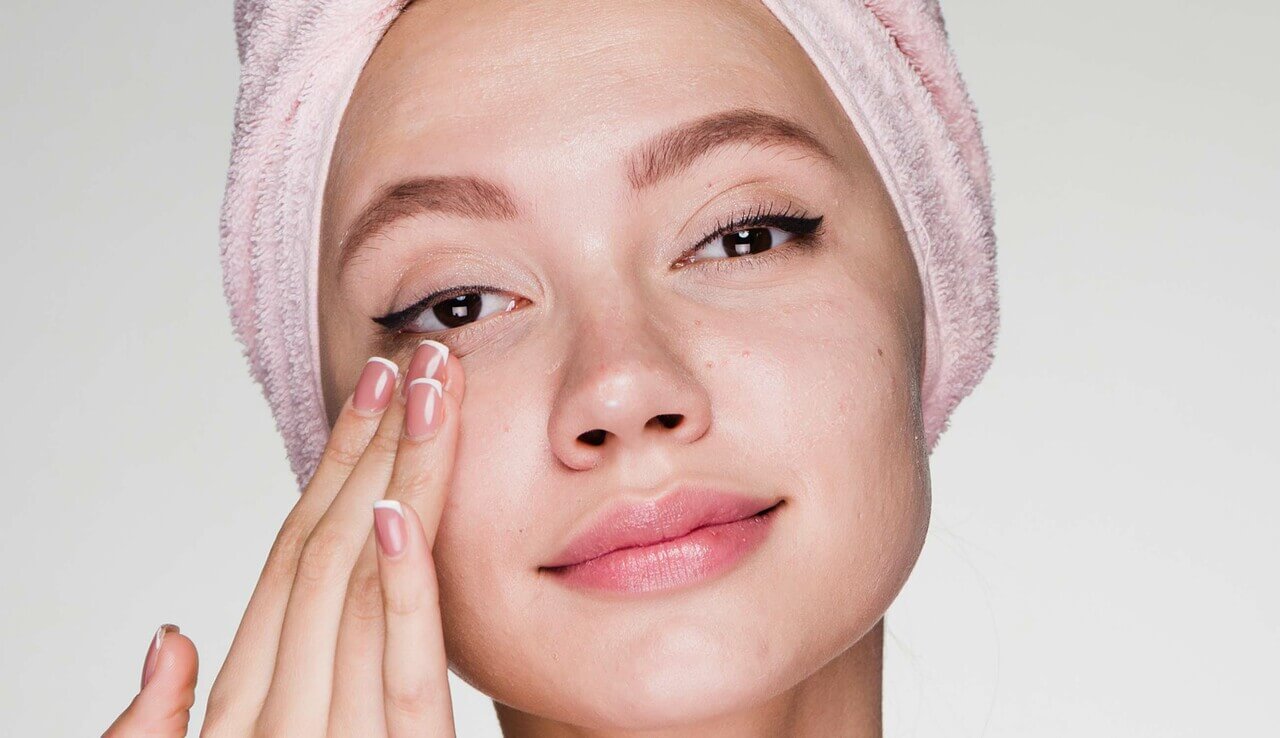
Depending on your skin type and concern, you might choose a physical exfoliant, a chemical exfoliant, or a combination of both. But before you choose, let’s explain how these exfoliants work.
Physical Exfoliation
The best physical exfoliants are those with smaller, finer particles that aren’t abrasive to the skin. Physical exfoliants can also be paired with fruit enzymes in skincare formulations. They’re a gentle but effective way to remove dead skin cells.
When learning how to exfoliate manually, you’ll use a face scrub, a tool like a face mitt or washcloth, or even microdermabrasion to physically clear dead skin cells.
Chemical Exfoliation
The best chemical exfoliants use a chemical liquid or gel to dissolve dead skin cells. The most popular chemical treatments are alpha and beta hydroxy acids. However, polyhydroxy acids are also slowly coming onto the scene.
Some of the best and most popular treatments in exfoliators include glycolic, salicylic, and lactic acids, as well as fruit enzymes (e.g. papain). These treatments are derived from natural sources.
Newsletter Subscribe
for more blog updates and exclusive discounts
Both types of exfoliation methods do essentially the same thing – remove dead skin cells – but they work differently. According to experts, there are a few key differences you should be aware of between chemical and physical exfoliation.
Mild chemical exfoliants tend to be gentler on skin than physical scrubs. Many facial scrubs on the market have large, uneven particles that can irritate the skin. Chemical exfoliants are less prone to user error in terms of applying too much pressure, which can lead to inflammation. In the end, choosing one method over the other has more to do with what your skin can tolerate and your skin type!
Both chemical and physical exfoliants have their pros and cons. It’s important to listen to your skin’s needs and choose an exfoliant that suits your skin type.
Sensitive, Dry, and Mature Skin
If you have this skin type, lactic acid or PHAs are a great all-rounder and are a gentler choice of exfoliators. They don’t penetrate the skin as deeply – less irritation for the win!
Normal and Combination Skin
If you have this skin type, glycolic acid holds the title of having a lower molecular weight than most other acids. This means it can penetrate your skin more deeply.
Oily, Breakout-Prone Skin
If you have this skin type, your skin may enjoy a salicylic acid (BHA) product. Salicylic acid has anti-inflammatory and antibacterial properties, which are helpful for acne.
For a physical exfoliator for these skin types, it’s best for sensitive and mature types to stick to gentle ingredients like jojoba beads, fruit pulp, and rice powder. For normal, combo, and oily skin types, look for ingredients like matcha powder and colloidal oatmeal. Those with acne-prone skin types can benefit from oat flour and seed/shell powders.
To prevent damage to your skin and optimize your exfoliation process, here are important tips and guidelines to find the best exfoliator for face that works for you:
Tip #1: Use Chemical Exfoliants
If you’ve never learned how to exfoliate with an acid before, you don’t want to jump straight into using higher percentages – start low and slow to avoid irritation.
Tip #2: Wear Sunscreen
Whether you use a physical or especially a chemical exfoliant, you should always use sun protection. Even with the best exfoliator for face, chemical exfoliants make skin more sensitive to the sun.
Tip #3: Quench Your Skin
As hydroxy acids can dry out your skin, you always want to replenish your moisture levels afterward with a natural moisturizer.
Tip #4: Don’t Over-Exfoliate
It’s important not to exfoliate too much, especially if you have oily or acne-prone skin. Over-exfoliating your face can cause the sebaceous glands in your skin to produce even more oil, causing breakouts.
Tip #5: Listen to Your Skin
If you see signs of over-exfoliation like dryness, burning, or flaking, take a rain check on exfoliation. This means your skin is dealing with a lot of irritation and needs a break.
100% PURE Konjac Sponge
Our natural facial sponge is just two simple ingredients: konjac plant and bamboo charcoal and it’s exfoliating but gentle. Charcoal bamboo acts like a magnet pulling impurities and leaving the skin soft and clean
Acai Pulp Facial Scrub
Get plenty of gentle yet effective buffing power to slough away dead skin with our Acai Pulp Facial Scrub. This antioxidant-rich scrub features finely ground grape seed and acai pulp, which are gentle enough for use even on sensitive skin.
Matcha Oat Face Scrub
Our Matcha Oat Face Scrub uses exfoliating matcha powder and colloidal oatmeal to soften the complexion. This formula features small particles and might be more appealing to those seeking light to medium exfoliation.
Strawberry Brightening Scrub
The Strawberry Brightening Scrub is a gentle facial scrub that uses all-natural berries to exfoliate the skin. The AHA Fruit Acids blend also works to exfoliate and soften the skin, while papain helps to soothe and reduce inflammation.
Can I use an exfoliator if I have sensitive or acne-prone skin?
Yes. Regardless of your skin type, exfoliation helps lift away dulling surface debris. Certain exfoliants can help lessen the appearance of acne and fade acne scars. However, it's crucial to choose a product that's gentle yet effective for your acne-prone skin.
Physical exfoliants, like cleansing scrubs and textured cloths, require manual rubbing, which may irritate the skin. If you have this skin type, your complexion might enjoy a salicylic acid (BHA) product. Salicylic acid has anti-inflammatory and antibacterial properties, which are helpful for acne.
For sensitive skin, it’s important not to use harsh scrubs or rub you skin with cleansing cloths. Lactic acid or Polyhydroxy Acids (PHAs) are a great all-rounder and are a gentler choice of exfoliators. They don’t penetrate the skin as deeply – less irritation for the win!
Can I use different types of exfoliators at the same time, or should I stick to just one?
Chemical products, like AHAs and BHAs, tend to exfoliate more gently than their physical counterparts, such as scrubs, and they can be more effective. Still, they can also cause irritation if used incorrectly. Using one type of exfoliant at a time is sufficient. Otherwise, you run the risk of stripping your skin of its natural oils or over-exfoliating.
Refrain from using a physical and chemical exfoliant at the same time, unless both exfoliants are very gentle. For sensitive or reactive skin, it's best to start off with one type of exfoliant and then add on a second if you feel your skin needs more and it’s safe to use with no adverse reactions. If you do use two at once, choose gentle options that are less likely to irritate your skin type.
What should I do if my skin reacts negatively after exfoliating?
Remove the product immediately. You should also stop using retinol products, and physical or chemical exfoliants. Switch to a natural mild cleanser and a moisturizer until your skin has healed. Once your skin is back to normal, re-introduce a gentle exfoliant.
Can exfoliating help reduce the appearance of acne scars or hyperpigmentation?
Yes! Exfoliating AHAs and BHAs stimulate collagen production to help reduce the appearance of scarring and acne spots. These chemical exfoliants can help combat active acne breakouts and reduce acne scarring - mainly when it is in the form of hyperpigmentation or discoloration.
Not to be forgotten, exfoliation is a super important part of your skincare routine, regardless of your skin type! Pairing the best exfoliator for face with your skin needs will lead to rejuvenated, brighter, and potentially clearer skin. Sound good? We think so too.
We carefully hand-select products based on strict purity standards, and only recommend products we feel meet this criteria. 100% PURE™ may earn a small commission for products purchased through affiliate links.
The information in this article is for educational use, and not intended to substitute professional medical advice, diagnosis, or treatment and should not be used as such.


